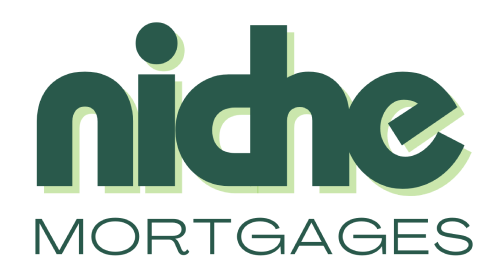Find the Right Home Loans for Your
We believe that your unique financial story deserves a tailored solution. We offer access to a wide range of home loans options, from major banks to alternative lenders and private investors, so you can move forward with confidence, even if your situation doesn’t fit the traditional mold.
Our Home Loan Solutions
At Niche Mortgages, we go beyond the one-size-fits-all approach of big banks. We look at your full financial picture, not just your credit score or tax returns, to match you with the right type of home loan. Whether you qualify for a conventional mortgage through a bank or need a more flexible option through a private lender, we’ll help you understand the best path forward.
We simplify the process, explain every step, and ensure that you feel confident, not overwhelmed, when buying a home in Canada.
Different Home Loans Types
Not all home loans are created equal, and that’s a good thing. Whether you’re buying your first home, upgrading, or facing unique financial challenges, there’s a mortgage option designed to fit your situation. At Niche Mortgages, we take the time to explain the different types of home loans available in Canada, so you can make an informed choice that supports your goals, budget, and lifestyle.
Fixed and Variable Rate Mortgages
We offer both fixed and variable mortgage options to match your financial goals and risk tolerance.
High-Ratio Mortgages
If you have less than 20% saved for a down payment, you may qualify for a high-ratio mortgage. These loans are insured and designed to help buyers get into the market sooner.
Newcomer Mortgages
If you’re new to Canada and have a valid PR card (within the first five years), you may qualify for special mortgage programs with looser debt ratio requirements.
Alternative Lending Solutions
Not everyone fits the criteria set by big banks and that’s okay. If you’re self-employed, don’t declare much personal income, or have unconventional documentation, we work with alternative lenders who evaluate the bigger picture.

Start Your Homeownership Journey
Whether you’re new to Canada, buying your first home, or need a second chance after credit issues, Niche Mortgages can help you find the right solution.
First-Time Home Buyer Support
Buying your first home? We’re here to guide you every step of the way. As a first-time buyer, it’s natural to have questions, and our job is to make things clear. From figuring out what you can afford to getting pre-approved and choosing the right mortgage product, we’ll help you navigate every decision with confidence. We’ll also show you how to take advantage of first-time buyer programs, rebates, and incentives designed to ease your path to homeownership. Whether you’re just starting to explore or ready to make an offer, we’ll help you secure a mortgage that supports your long-term financial goals.
Frequently Asked Questions About Home Loans
Buying a home can feel overwhelming, especially if it’s your first time or your financial situation is unique. Here are some of the most common questions!
Contact us now!Yes. We specialize in helping business owners who may not show high income on paper but have strong financials. Whether you have large deposits, retained earnings, or formal financial statements, we work with lenders who understand your situation.
You still have options. We work with alternative lenders and private mortgage providers who consider the full picture, not just your credit score. If you’ve had collections, high debt usage, or a past bankruptcy, we’ll help you find a path forward.
Yes! If you’re a permanent resident (within the first 5 years), many lenders offer special mortgage programs just for newcomers. These include flexible debt ratio guidelines and reduced documentation requirements.
A fixed-rate mortgage keeps your interest rate the same for the entire term, ideal if you prefer stability. A variable-rate mortgage can fluctuate with market conditions and may offer lower initial rates. We’ll help you decide which one suits your needs best.
In most cases, the minimum down payment is 5% for homes under $500,000. For homes over that amount, it’s a tiered structure. We’ll review your budget and help you understand exactly how much you need.


